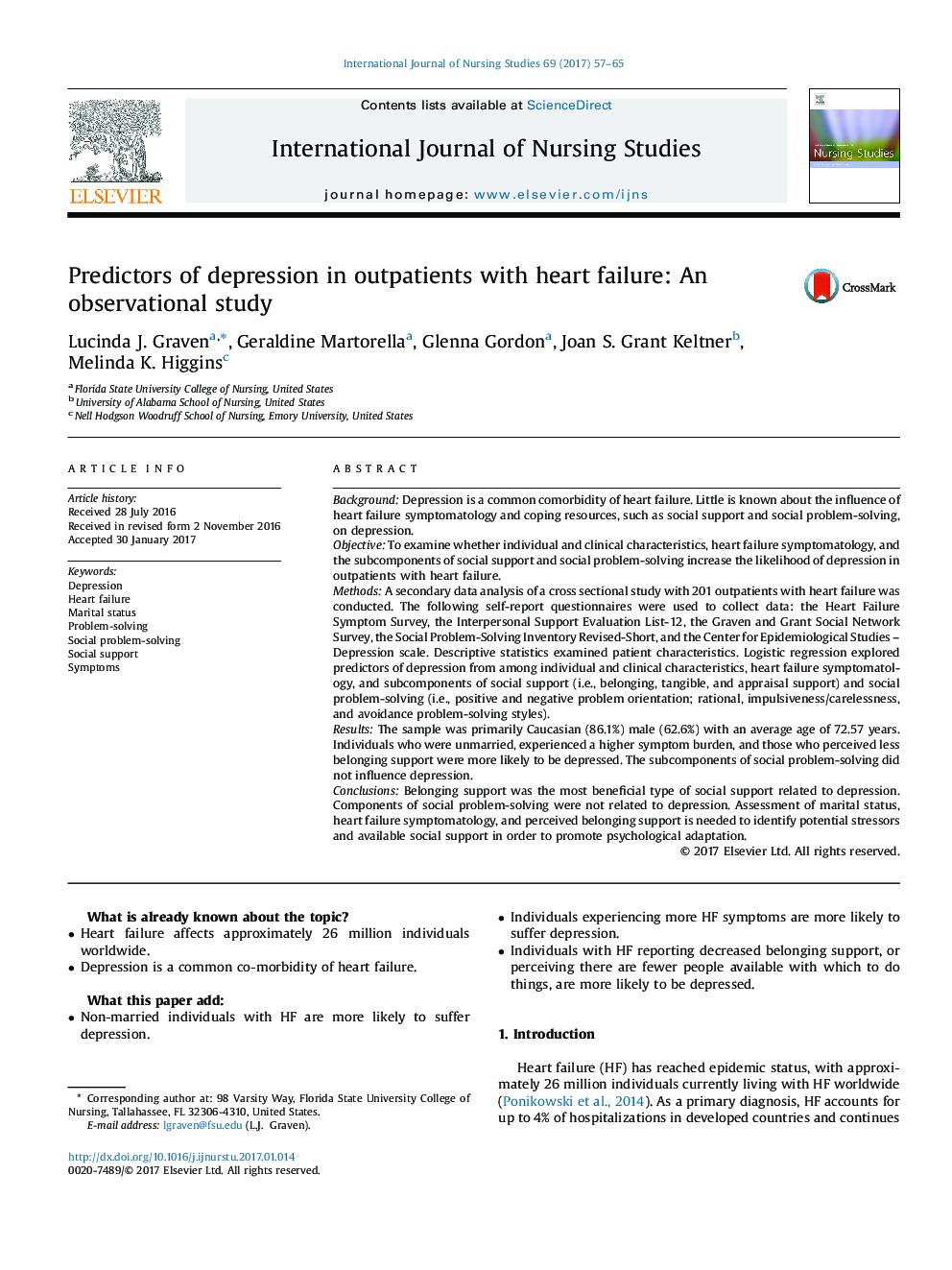| کد مقاله | کد نشریه | سال انتشار | مقاله انگلیسی | نسخه تمام متن |
|---|---|---|---|---|
| 5121005 | 1486500 | 2017 | 9 صفحه PDF | دانلود رایگان |
BackgroundDepression is a common comorbidity of heart failure. Little is known about the influence of heart failure symptomatology and coping resources, such as social support and social problem-solving, on depression.ObjectiveTo examine whether individual and clinical characteristics, heart failure symptomatology, and the subcomponents of social support and social problem-solving increase the likelihood of depression in outpatients with heart failure.MethodsA secondary data analysis of a cross sectional study with 201 outpatients with heart failure was conducted. The following self-report questionnaires were used to collect data: the Heart Failure Symptom Survey, the Interpersonal Support Evaluation List-12, the Graven and Grant Social Network Survey, the Social Problem-Solving Inventory Revised-Short, and the Center for Epidemiological Studies - Depression scale. Descriptive statistics examined patient characteristics. Logistic regression explored predictors of depression from among individual and clinical characteristics, heart failure symptomatology, and subcomponents of social support (i.e., belonging, tangible, and appraisal support) and social problem-solving (i.e., positive and negative problem orientation; rational, impulsiveness/carelessness, and avoidance problem-solving styles).ResultsThe sample was primarily Caucasian (86.1%) male (62.6%) with an average age of 72.57 years. Individuals who were unmarried, experienced a higher symptom burden, and those who perceived less belonging support were more likely to be depressed. The subcomponents of social problem-solving did not influence depression.ConclusionsBelonging support was the most beneficial type of social support related to depression. Components of social problem-solving were not related to depression. Assessment of marital status, heart failure symptomatology, and perceived belonging support is needed to identify potential stressors and available social support in order to promote psychological adaptation.
Journal: International Journal of Nursing Studies - Volume 69, April 2017, Pages 57-65
